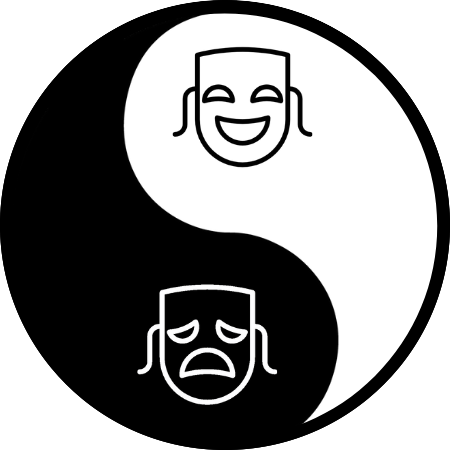Bergeron's Hierarchy of Mindset
Ben Bergeron is the coach behind the Fittest Man and Fittest Woman on Earth.
A former Ironman triathlete, Bergeron is now considered one of the world's top CrossFit coaches. However, Bergeron's secret sauce isn't found in physical training. The hallmark of Bergeron's approach to peak performance is mental training, and he doesn't even keep it a secret.
For Bergeron, greatness isn't for "the elite few". In fact, he believes — as we do — that the breakthroughs in sports psychology are just as applicable to us mere mortals as those who regularly deadlift over 200 kgs. "The mindset of a champion is uncommonly rare, but it doesn't have to be — every one of us is capable of it."
The five mindsets
Sports psychology adopted the "mindset matters most" mantra early. Researchers recognised that at a certain point — say the Olympic Games — the athletes' physical training was more or less the same. They trained for roughly the same number of hours, on the same selection of things, with the same unshakeable dedication.
What separated the legends from the rest of the elite was their mental training. What they allowed themselves to focus on, and how they allowed themselves to do so. In short, the legends had also trained a world-class mindset.
This is a foundational component of Bergeron's approach and something he has spent years studying. So much so, he's come to define a "hierarchy of mindset", employed by his world champions today.
He highlights that while we've each experienced every stage at some time or another, "The goal is to push towards the top level [in] all situations".
- The Victim: This is where everything happens to us. We don't take any responsibility and therefore don't ever take action.
- The Pessimist: This is where our outlook is always dire. Everything sucks. We take action but complain about doing so and fail to acknowledge any upside.
- The Optimist: This is where we live by Bob Marley's "Every little thing is going to be alright". We model hope but don't have a plan other than that things will just work out.
- The Realist: This is where we see reality as it is. Good things happen, bad things happen. Life can be random and unfair but what matters is how we respond.
- The Curious Competitor: This is where we actively seek out aligned challenges. We know that this is where learning and growth take place, so this becomes our main focus.
The actor application
Bergeron's framework possesses tremendous value for us actors.
The (current) reality of our industry is that actors — excepting the top 1% — have very little control. This isn't a dig, just the truth. We've all voluntarily signed up to play this game, so let's at least acknowledge the playing field itself.
While this lack of influence can quickly become our biggest pain point, it can equally provide a fantastic training ground for levelling up our mindset. For those who'd like to wiggle towards the higher end of the hierarchy, Bergeron says: "It will take practice. It will take awareness. It will take presence. But it is worth it." If we intend to be in this acting game for the long run, it will absolutely be worth it. Mindset matters most.
The first step is to recognise which mindset we currently identify with. Different situations and circumstances may elicit shifts, but where do we predominantly fall? There's no right or wrong. As always, awareness is the key.
Neuroplasticity would have to be one of the most empowering psychological discoveries ever made — we can literally rewire our brains. So, if we feel we tend to sit at the bottom end of the hierarchy, all good. If we have the desire, we can change that.
Bergeron does a pretty good job of outlining each stage, so moving on up simply requires us to start embodying the characteristics of the mindset above.
Can we move from Victim to Pessimist by sending out ten cold emails?
Can we move from Pessimist to Optimist by defining our personal vision of success?
Can we move from Optimist to Realist by getting our results elsewhere?
Can we move from Realist to Curious Competitor by welcoming honest "feedback"?
We can level up using other prompts if these don't float our boat. The point is we're taking the abundance of challenges and obstacles we face as actors and using them to our benefit.

Cranston knows. This is what makes us legends.
Thoughts / feedback / challenges? We'd genuinely love to hear.
Need some 1-On-1 attention? Book your coaching session today.
